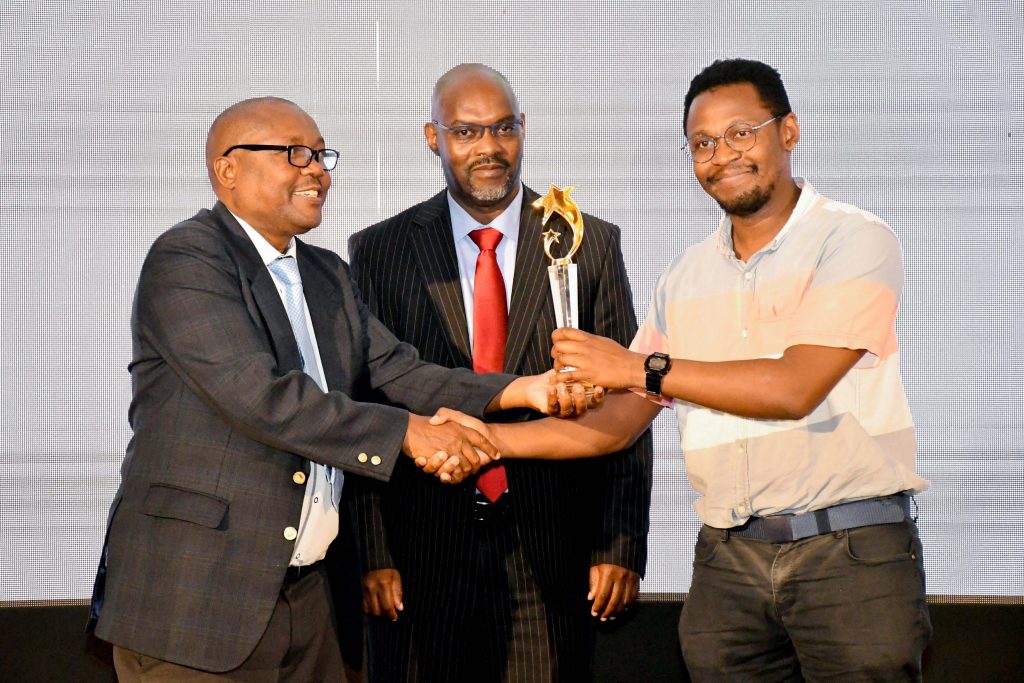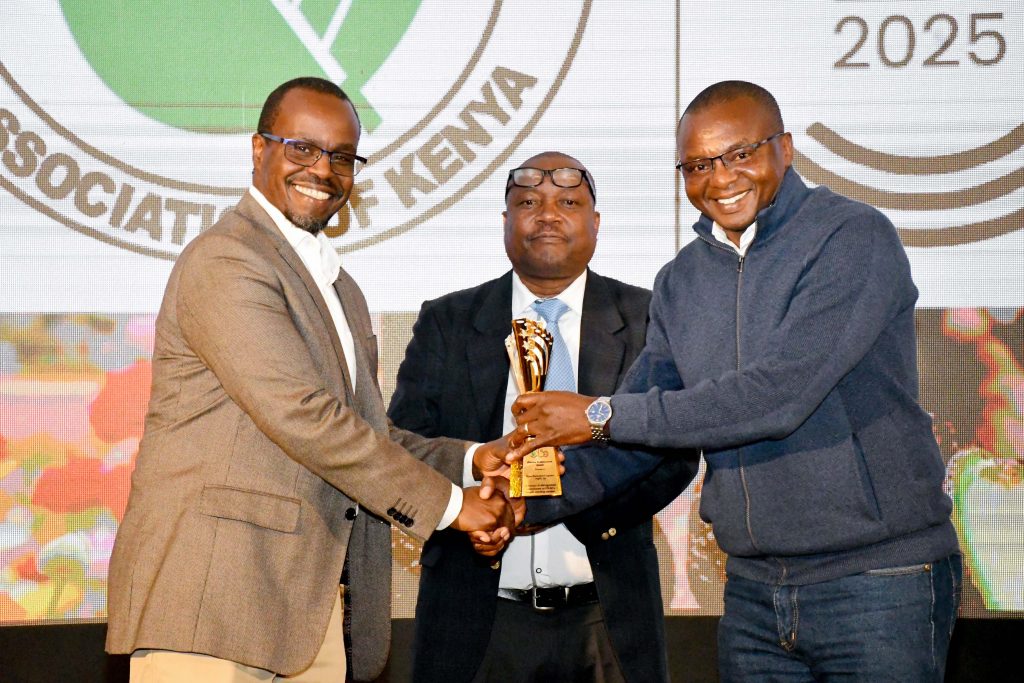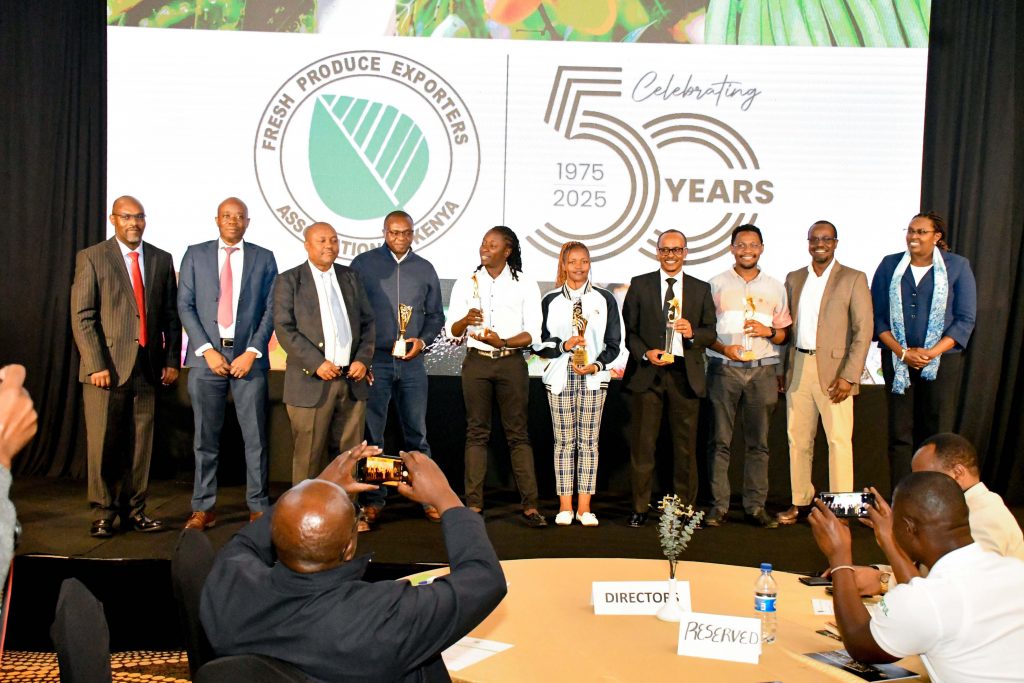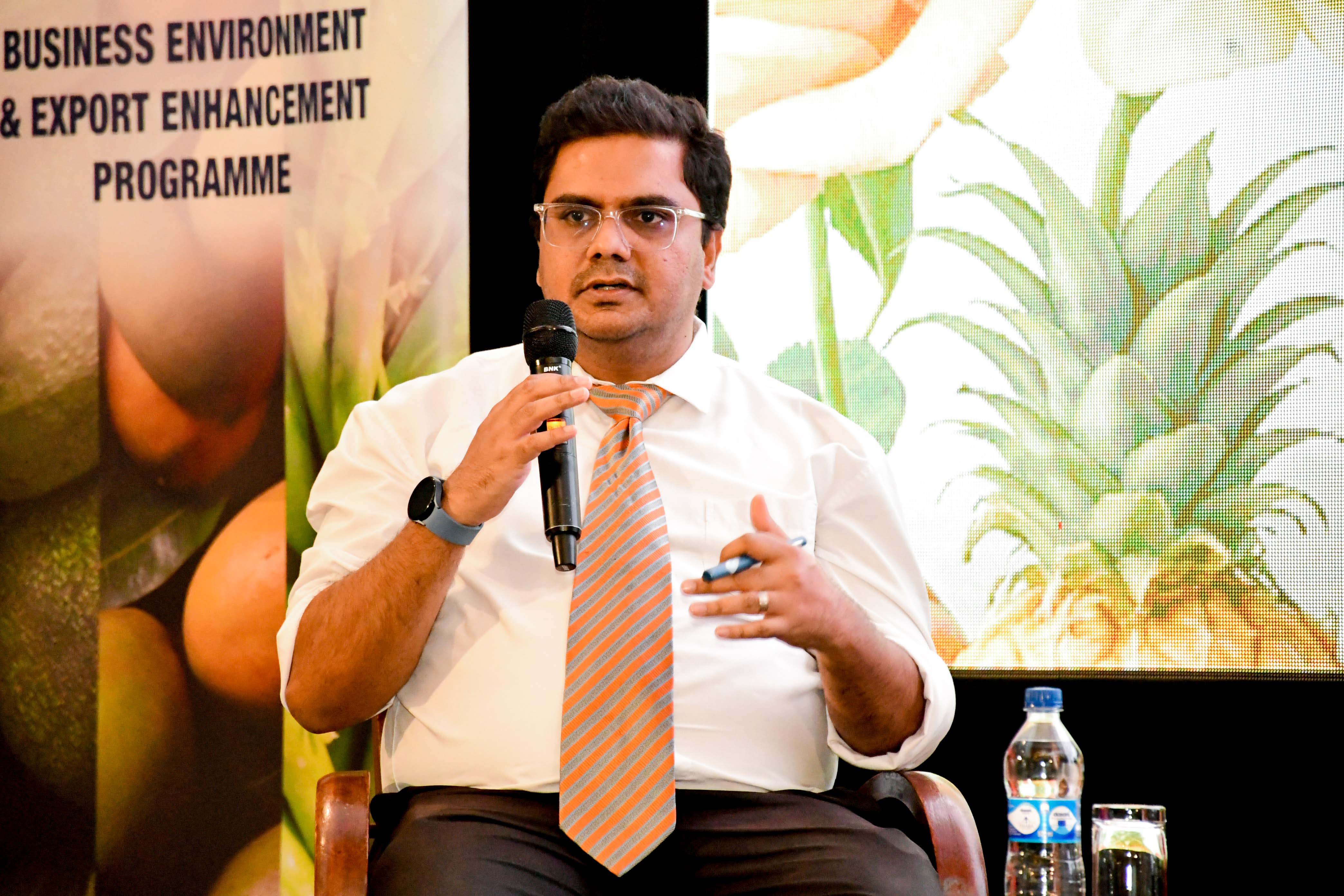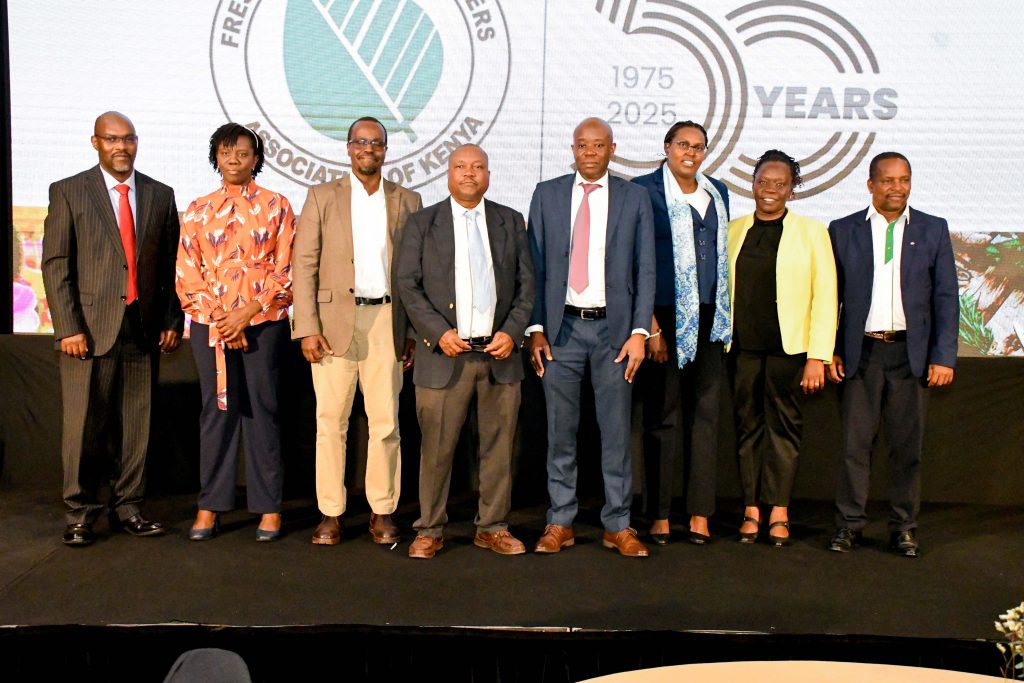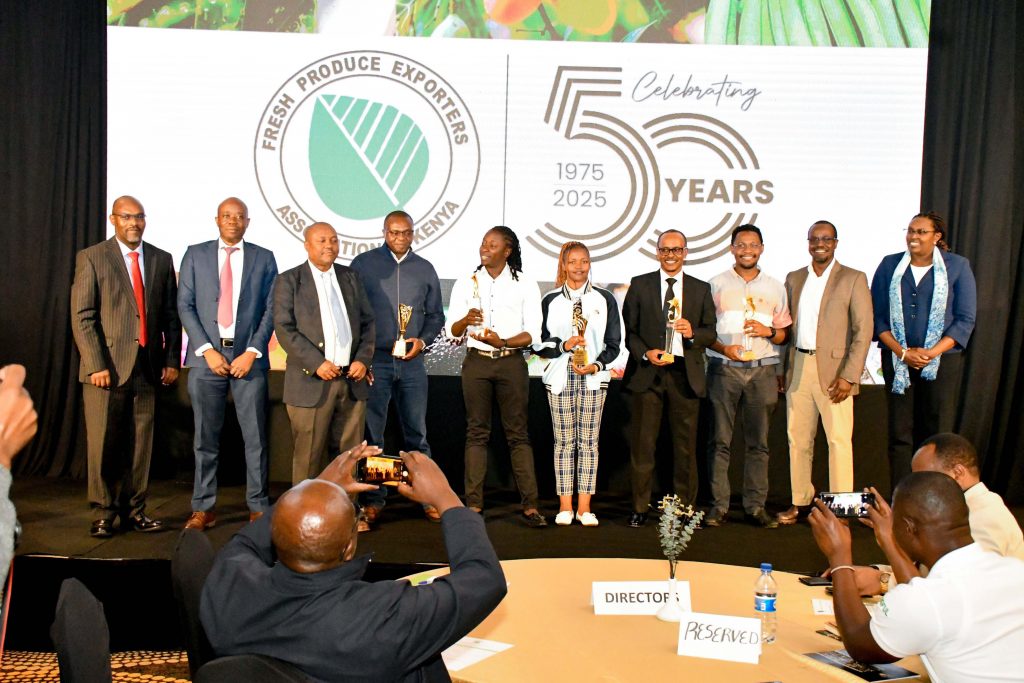
The atmosphere in Nairobi was filled with joy and celebration as guests gathered to commemorate the impressive 50-year journey of the Fresh Produce Exporters Association of Kenya (FPEAK). The event featured cheerful speeches from Colead Country Lead Dr. Chagema Kedera and Trade Mark Africa’s Simon Konzolo, drawing the crowd into jubilant celebration befitting this significant milestone.
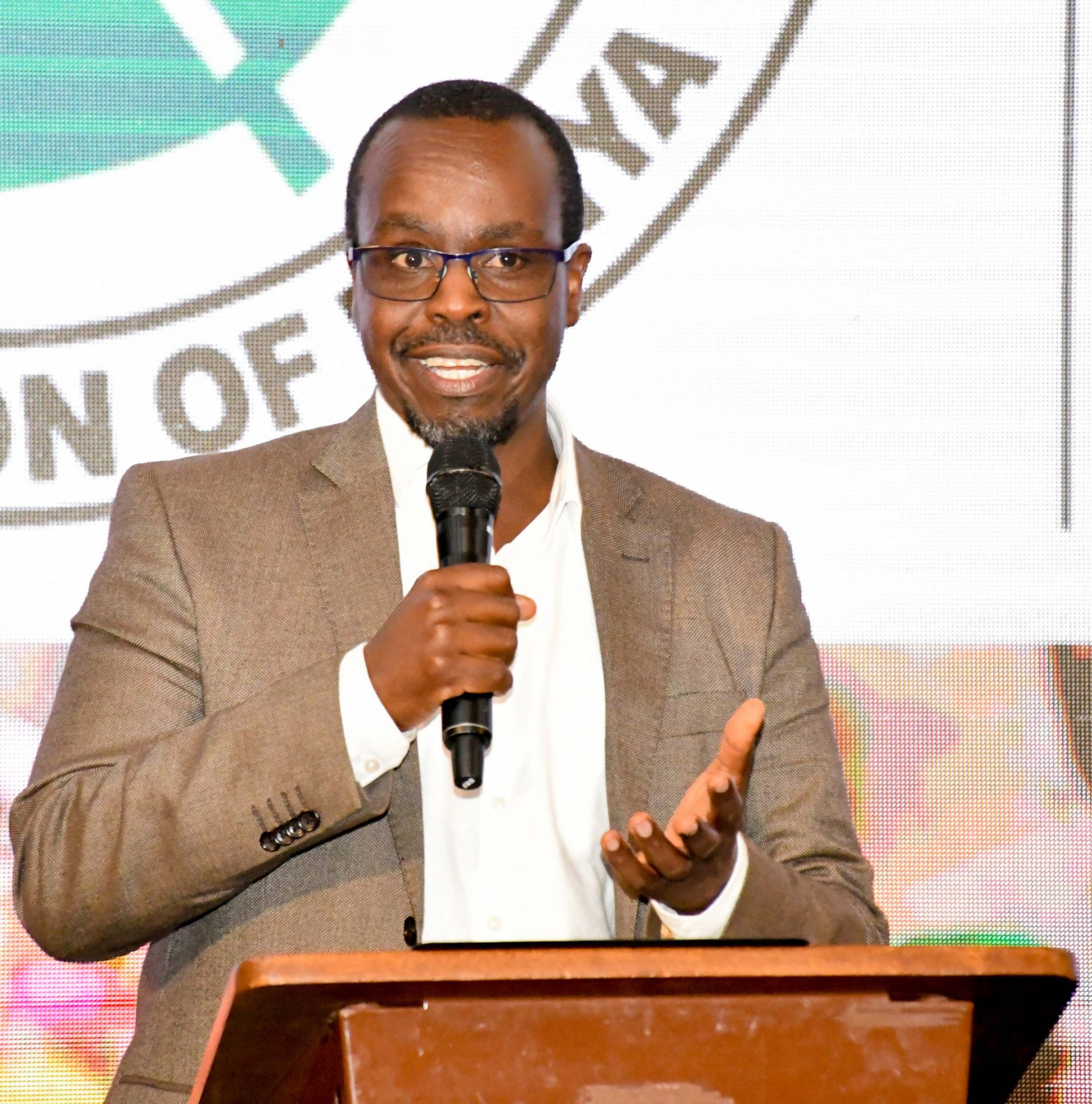
Amidst the festivities, FPEAK Chairman Mr. Robert Kotut took the stage to both reflect on the past and share a vision for the industry’s future. His words brought an immediate hush over the attendees, who were eager to absorb his insights. “It’s an opportunity to reflect on the past, celebrate the present, and look forward to the future,” Mr. Kotut stated. “It’s both a privilege and a profound honour,” he further remarked.
FPEAK began as an ambitious initiative by a handful of visionary entrepreneurs who sought to
unite Kenya’s fresh produce exporters under a single entity. Their goal was to advocate for improved policies and fairer market access while helping members explore the vast possibilities of international trade. They recognized potential that many overlooked—the extraordinary climate, fertile soils, and dedicated workforce of Kenya that could establish our nation as a leading force in horticulture on the global stage.
At that time, Kenya was exporting just over 26,600 metric tons of fresh produce. The infrastructure was lacking, with cold storage facilities at the airport being non-existent and knowledge among smallholders limited. Despite these challenges, the groundwork for transformation was laid.
The Path of Growth and Innovation
Over the past five decades, Kenya has made significant strides by establishing formal trade routes into European markets, successfully introducing its vibrant vegetables and fruits to major supermarket chains. The country has strongly advocated for aligning its plant health and phytosanitary standards with global best practices, which opened the door to numerous new markets. As a result, investments in greenhouses, irrigation, and cold-chain logistics
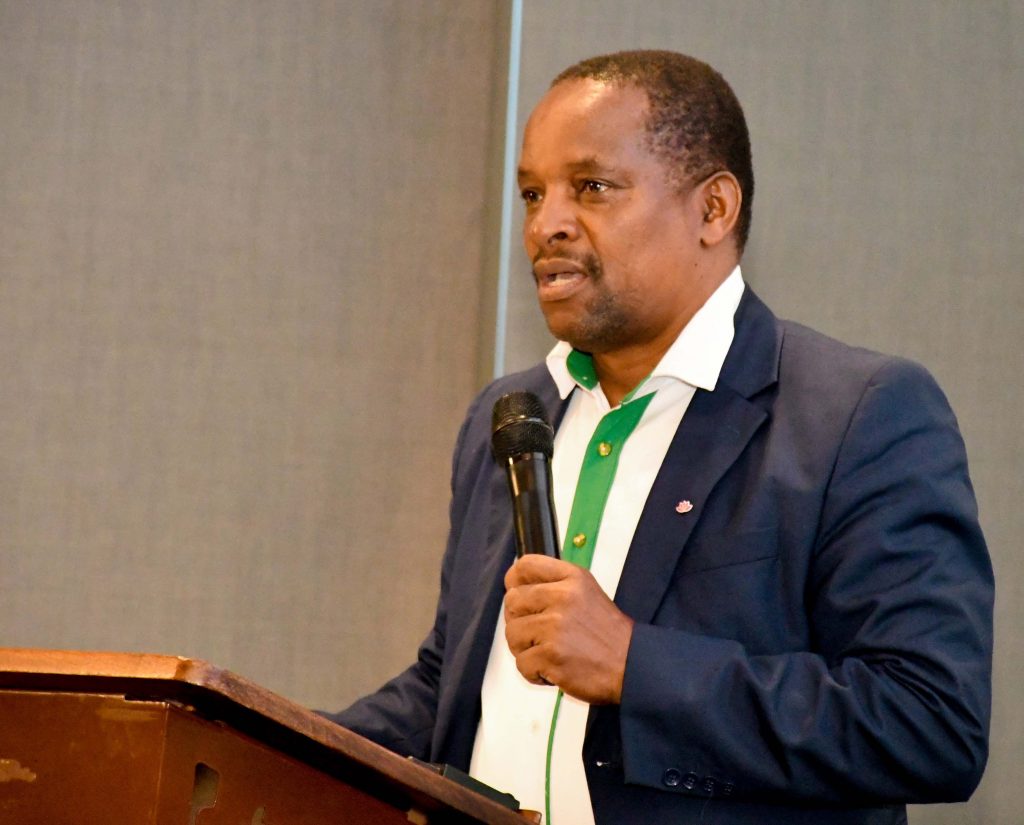
have flourished, culminating in Kenya becoming the leading flower exporter to the EU by the end of the decade.
As we entered a new era, the emphasis turned towards ensuring quality and compliance. Thousands of farmers underwent training in GlobalG.A.P. and other international certifications. This commitment to standards positioned Kenya as a leader in compliance, boasting the highest number of certified smallholders in Africa. By 2010, horticulture had emerged as the second-largest foreign exchange earner, trailing only behind tea. New products started to gain prominence, including avocados, mangoes, and passion fruit. The country embraced value addition through cut vegetables, ready-to-sell bouquets, and pre-packed salads. Upgrades to Jomo Kenyatta International Airport (JKIA) and cold chain systems significantly bolstered the export capabilities.
However, the journey was not without its challenges. Key issues like Brexit and the impending expiration of important trade agreements, alongside emerging pests such as Tuta absoluta and FCM affecting vital crops, posed significant threats. The COVID-19 pandemic further tested the supply chains.
Shared Solutions
With sustainability becoming a focal point, attention turned to traceability, water use efficiency, and low-carbon production. Although sea freight emerged as a cost-effective and environmentally friendly alternative, challenges like piracy and disruptions in the Red Sea necessitated constant innovation.
Fortunately, Kenya secured crucial trade agreements, including the Kenya-UK and Kenya-EU EPA, ensuring ongoing access to key markets. Despite the hurdles, the resilience of the industry has been remarkable, as stakeholders continue to prioritize sustainability, sea freight solutions, traceability, and climate-smart practices while navigating geopolitical instability and the threats of piracy. The vital trade agreements with the UK and EU have played a pivotal role in safeguarding and ensuring our continued market access.
Work in Progress
The sector is currently navigating a range of significant challenges. Climate change remains an urgent issue, alongside the rise of new pests and worsening water scarcity. Compliance expenses are climbing, and businesses are increasingly burdened by both county and national cess, taxes and regulations. Additionally, ongoing issues in the Red Sea have led to higher freight costs and longer transit times, putting it at a disadvantage in terms of competitiveness. Meanwhile, the global demand for ethically produced, low-carbon products is growing stronger each day, and Kenyan growers must rise to this challenge and invest in digital systems, adopting low-carbon practices, and ensuring ethical production to align with international expectations.
Government Support

Mr. Kotut expressed gratitude for the support and partnerships fostered by the government, particularly in establishing new preferential markets in China, Japan, Korea, and the GCC. He said the government had successfully secured trade agreements through EPA, UK Agreements, and AGOA, while
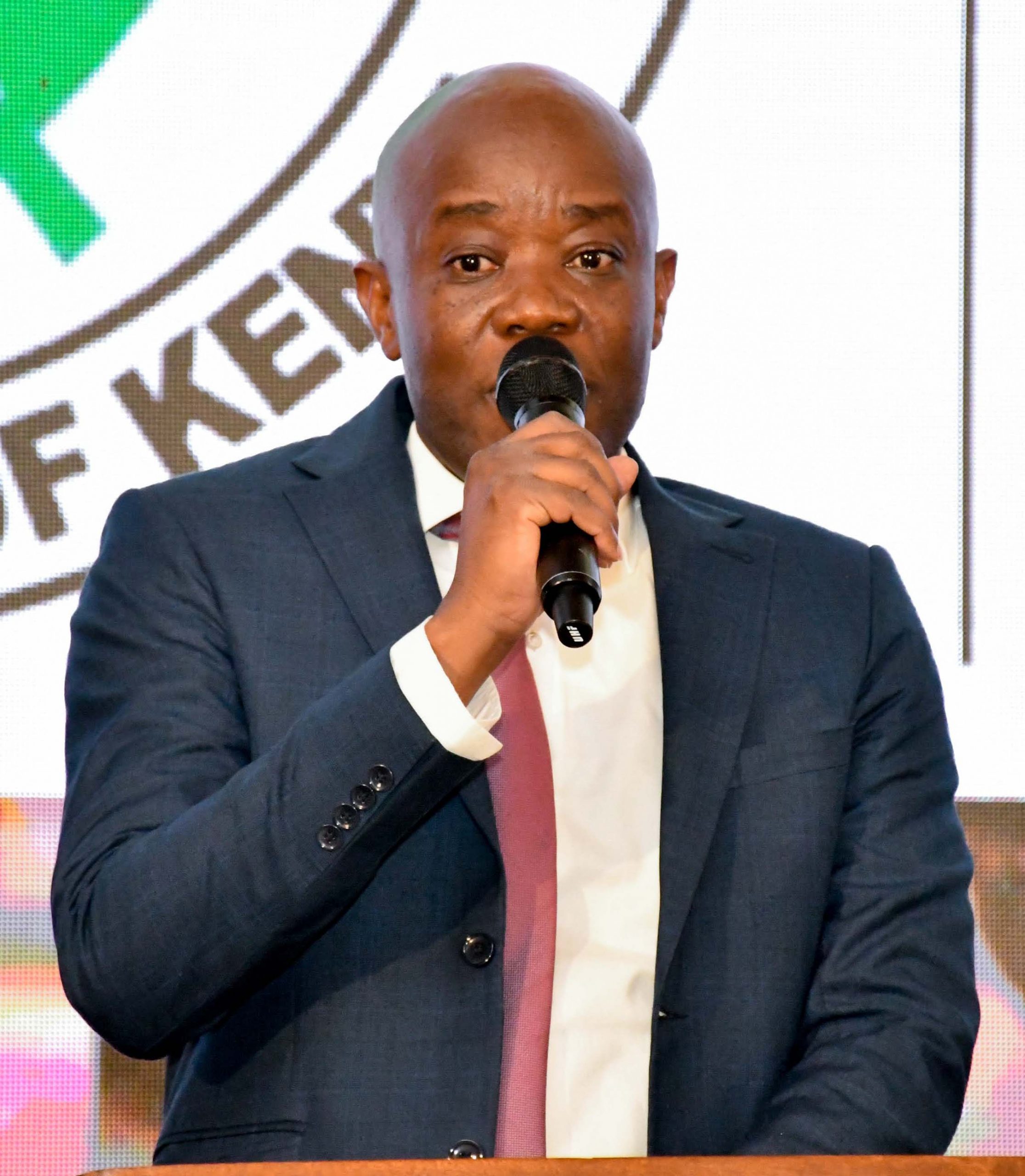
also maintaining a labour market that promotes competitiveness. He emphasized the importance of collaboration with organizations like HCD, KEPHIS, and PCPB, among other governmental bodies.
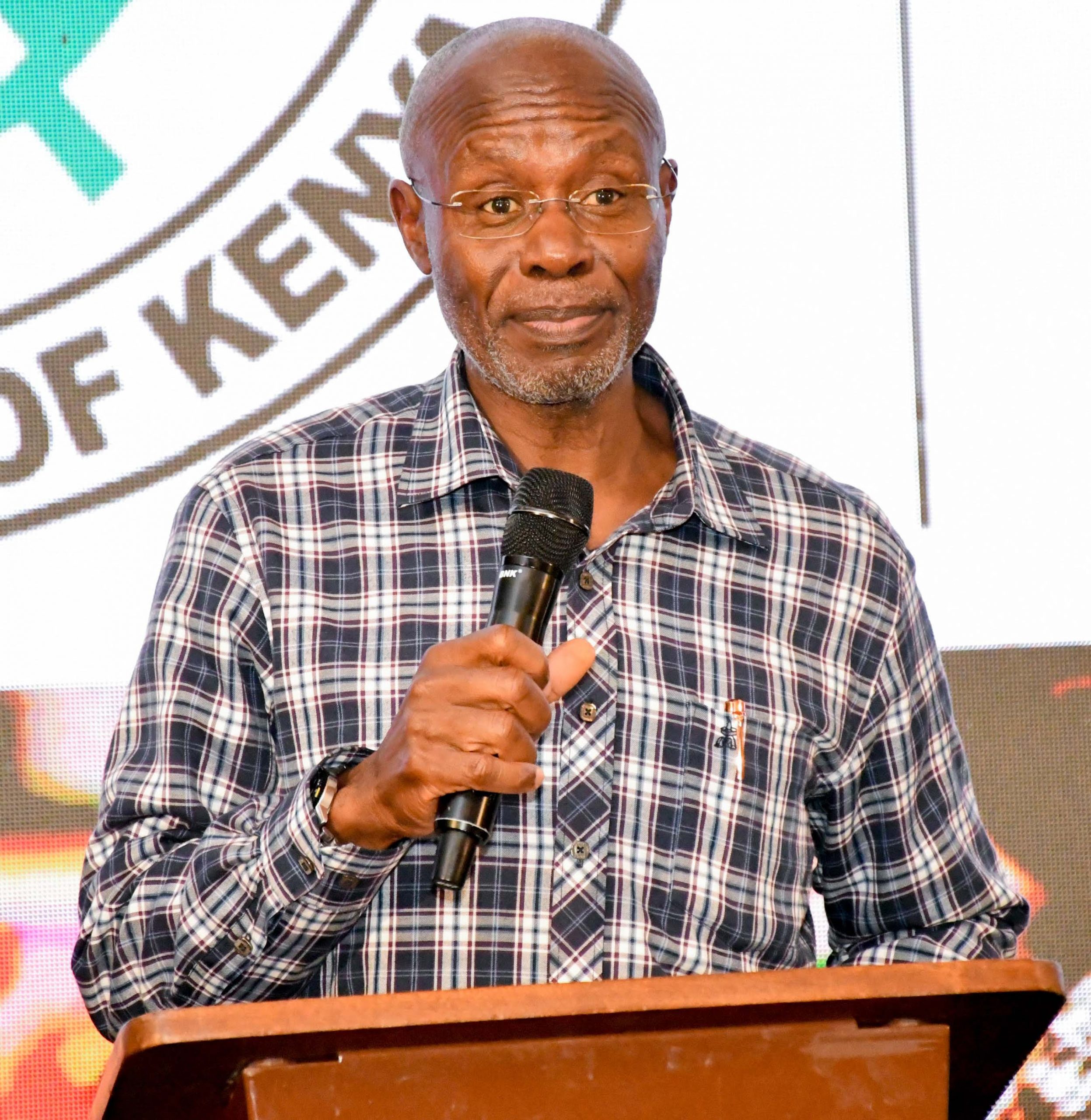
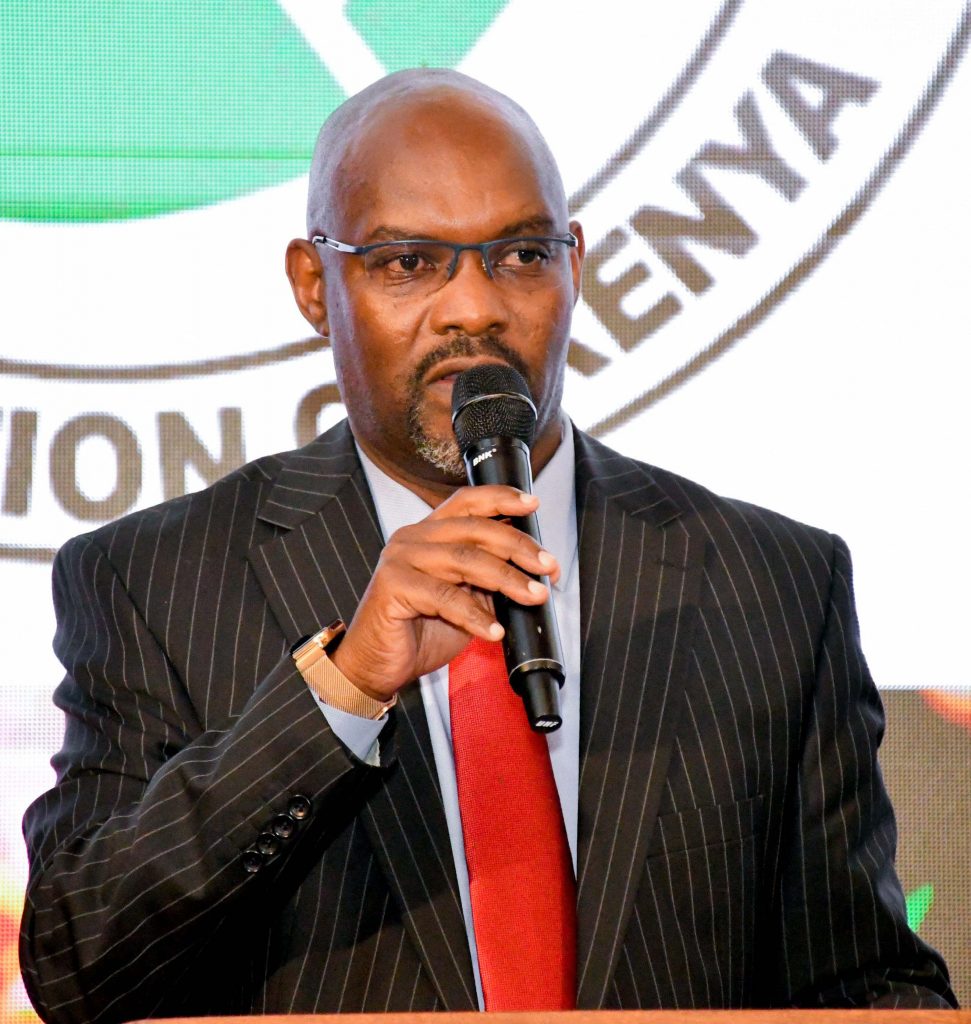
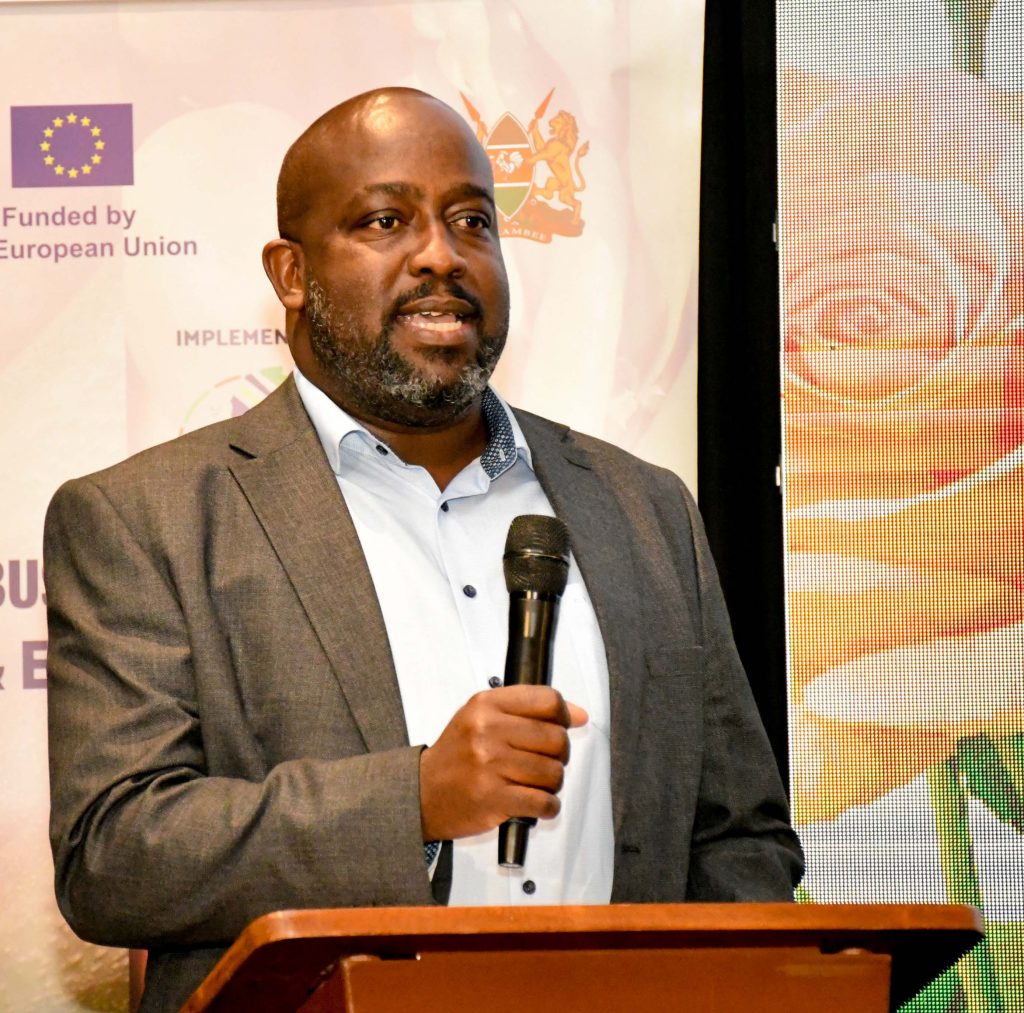
He also acknowledged the invaluable support of development partners such as USAID, the EU, DANIDA, Trademark Africa, GIZ, COLEAD, and the Government of the Netherlands. Their assistance had been instrumental in shaping the sector into what it is today, and much of this progress would not have been possible without their support.
Looking Ahead: Envisioning the Future
Mr. Kotut urged members and stakeholders to uphold their resilience, emphasizing that the future should inspire their mission even more than before. He stated, “We are on the verge of a horticultural revolution, driven by market diversification, innovative products, value addition, and climate-smart agriculture.” He encouraged members to invest in agri-tech and innovation, highlighting the importance of engaging youth by creating opportunities through technology-driven agribusiness and e-commerce. Furthermore, he called for investments in breeding and intellectual property to develop unique varieties of flowers, fruits, and vegetables.
Kenya is uniquely positioned to become Africa’s


hub for horticultural innovation. With strategic investments in infrastructure, climate resilience, and value chains, the sector has the potential to generate over 1 million jobs, increase export earnings beyond USD 3 billion, and strengthen Kenya’s strategies for green growth and food security.
Government Support
Mr. Jimmy Odhiambo, Director of Investment, representing the Cabinet Secretary of the Ministry of Investment, Trade, and Industry, reassured growers of the Ministry’s commitment to propelling them to greater heights. He highlighted various collaborative projects, advocacy efforts, unified capacity building, and the enhancement of county aggregation and industrial parks.
Mr. Kage, Director of the Crop Resources Directorate at the Ministry of Agriculture and Livestock Development, also represented the Cabinet Secretary. He reiterated their dedication to supporting this critical sector. He pointed out the importance of policy and regulatory support, market access, trade facilitation, infrastructure development, access to finance and inputs, as well as climate resilience and research.
Awards
The celebrations culminated in a series of awards recognizing outstanding contributions. Rewaza Farm was honoured as the top youth entrepreneur, while Saraya Ltd. was acknowledged for being the most innovative in horticulture. The Lifetime Achievement Award went to East Africa Growers, and Kenya Horticultural Exporters and Flamingo Horticulture were celebrated as champions of sustainability.
The event brought together growers, input suppliers, stakeholders, and government representatives, all united in applauding these remarkable achievements.

